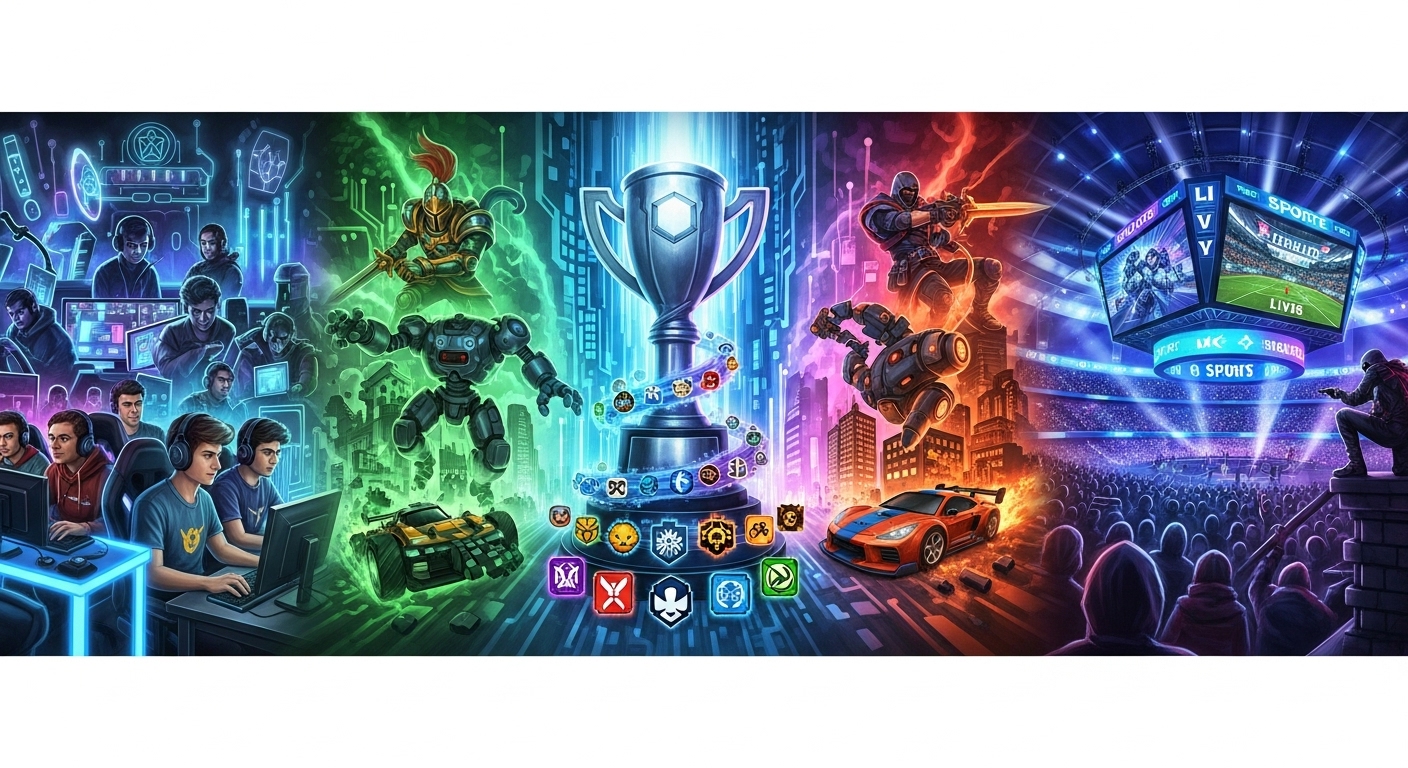
Esports Revolution: How Competitive Gaming is Redefining Entertainment
Esports, or electronic sports, has evolved from a niche hobby into a global phenomenon, attracting millions of fans and players worldwide. It combines skill, strategy, and technology, creating a competitive environment that rivals traditional sports in excitement, engagement, and professional opportunities.
Understanding Esports
Esports refers to organized, competitive video gaming. Players or teams compete in various game genres, including real-time strategy, first-person shooters, multiplayer online battle arenas, and sports simulations. Unlike casual gaming, esports emphasizes high-level skill, teamwork, and strategy.
Professional esports tournaments feature structured competitions, official leagues, and prize pools that often reach millions of dollars. These events showcase the dedication, discipline, and talent required to excel in the esports world.
The Rise of Competitive Gaming
The popularity of esports has grown rapidly over the last decade. High-speed internet, powerful gaming hardware, and streaming platforms have made it easier than ever for players and fans to connect. Competitions are now broadcast live to global audiences, creating fan communities and driving sponsorship deals.
Esports has also gained recognition as a legitimate career path. Professional gamers, coaches, analysts, and content creators earn substantial incomes, proving that competitive gaming is more than just entertainment—it’s a viable profession.
Popular Esports Games
Several games dominate the esports landscape due to their competitive depth, large player bases, and engaging gameplay:
- League of Legends: A multiplayer online battle arena game known for its complex strategy and team coordination.
- Dota 2: Famous for its high skill ceiling and massive tournament prize pools.
- Counter-Strike: Global Offensive: A tactical first-person shooter emphasizing precision, teamwork, and strategy.
- Fortnite: Combines battle royale mechanics with creative building, appealing to a younger audience.
- Call of Duty: Known for fast-paced action and competitive multiplayer modes.
These games attract millions of players and fans, fueling the growth of esports globally.
The Role of Streaming and Digital Platforms
Streaming platforms have been a major factor in esports’ rise. Platforms allow fans to watch live tournaments, follow favorite players, and interact with communities. Influencers and content creators also contribute by providing tutorials, gameplay highlights, and commentary.
This digital ecosystem has transformed esports into a spectator sport, bridging the gap between casual gamers and professional players while expanding the industry’s global reach.
The Benefits of Esports
Esports offers more than entertainment. It enhances strategic thinking, teamwork, and hand-eye coordination. Players develop problem-solving skills and learn to perform under pressure, traits that are valuable beyond gaming.
Additionally, esports promotes inclusivity. Unlike many traditional sports, esports has fewer physical barriers, allowing a wider range of participants to compete on a level playing field.
The Future of Esports
The future of esports looks promising. With continued technological advancements, virtual reality competitions, AI-enhanced training, and global tournaments will push the boundaries of competitive gaming. Educational institutions are also incorporating esports programs, providing structured pathways for aspiring players.
As esports grows, it will continue to reshape entertainment, redefine professional sports, and inspire new generations of gamers worldwide.
Conclusion
Esports has transformed gaming into a global cultural phenomenon, blending competition, strategy, and community. With its professional opportunities, fan engagement, and innovative gameplay, esports is not just a form of entertainment—it’s a revolutionary industry that is shaping the future of digital competition.


